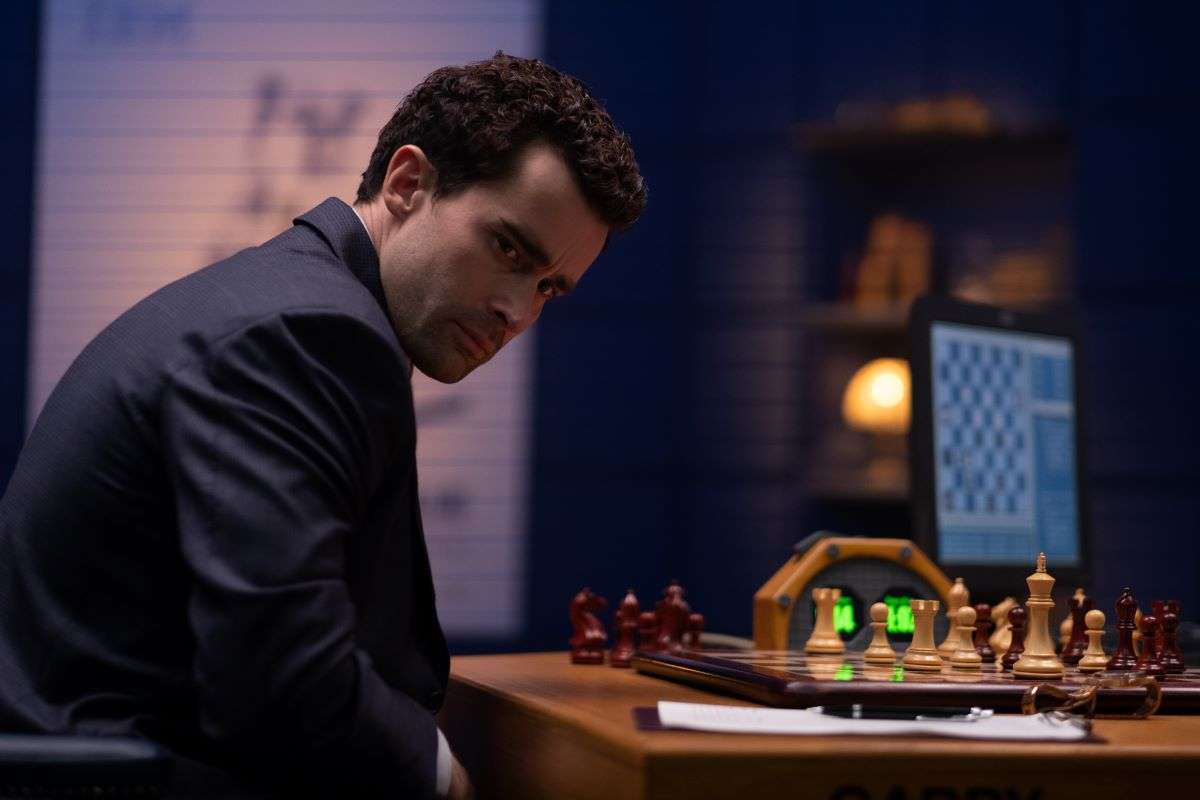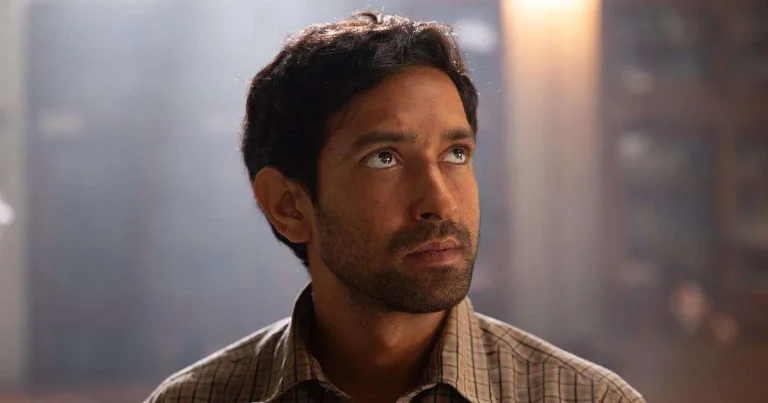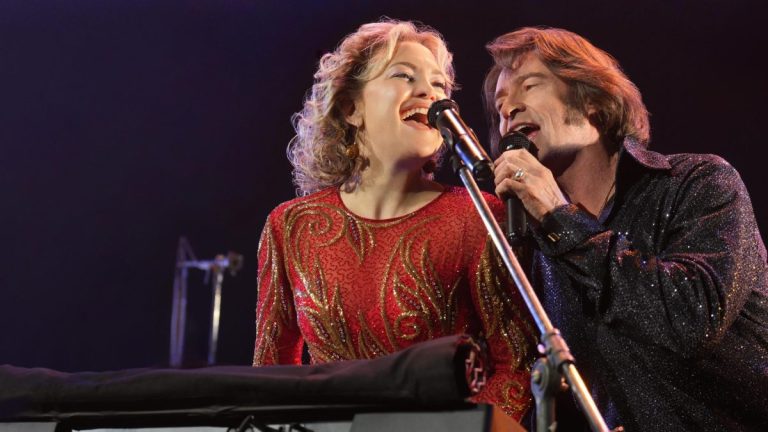Rematch (2024) ‘Series Mania’ Review: There’s a deep, pleasurable satisfaction in watching someone think through strategies by which they can defeat the other. It’s an emotion that perfectly gels in with the best of dramas which evokes nervousness and eagerness in witnessing something unfold to either one’s favour or disadvantage. The cardinal joy of these dramas is ascribed to the act of unfurling. It may sound like it’s a basic prerequisite, but the ability of the film/show to have our attention locked onto the action, a lot of which is a mental tussle, is key to its success.
Directed by Yan England and co-created with Bruno Nahon and Andre Gulluni, “Rematch” is a slick, riveting deep dive into a chapter in grandmaster Garry Kasparov’s (Christian Cooke, charismatic if one is able to make peace with the palpable exertions at getting the accent right) career when his fifteen-year-held world championship stood to be threatened by the advent of technology, particularly artificial intelligence. With a brief opening in the contemporary moment that introduces some kind of high stakes, the show hops back in time by twenty-five years to 1996.
At that time, Kasparov was on a streak of global supremacy. But the tide is changing with computers stepping up the ante, revolutionizing everything, and pushing the limits imposed by man. After Kasparov defeats a computer ‘Deep Blue’ programmed by PC at a minor game (Orion Lee), Helen (Sarah Bolger) sees the potential in what a globally televised rematch held in New York backed with stupendous marketing can do for her company, IBM. Once she manages to persuade both her boss and Kasparov to give her the go-ahead for the rematch, she mounts a massive operation to prop up Deep Blue in being perfect and invincible.
Kasparov can be quite vain. While he is initially reluctant to sign up for the rematch, he can’t help resisting the temptation of being the first to vanquish a computer. Before any match, he has no qualms in asserting it’s him who’s going to win. He is a man with a cool, unblinking focus that doesn’t divert or slow down. But staring at the chessboard all his life has also come at severe personal costs. He is so consumed with mastering the art of the game he has burnt way too many bridges in being present as both a husband and a father. In the throes of a divorce from him, his wife keeps their daughter, Sophia, to herself.

Even when Kasparov is in the same city as they are, he isn’t expressly interested in meeting them. When his mother, Klara (Trine Dyrholm), insists on it, he reminds her she made him privilege chess over everything else in his life. Having reoriented his priorities solely and wholly toward the game, constantly touring the world in tournaments with his mother having his back at every step, he cannot imagine turning them around or expanding them to include the obligations of domesticity.
Among the earliest scenes of the show, Kasparov describes chess as “war in its purest form.” The player’s goal, he adds, is to destroy his opponent’s mind and spirit. When the show directs its full, concentrated gaze on the pivotal chess tournaments, it captures with electrifying effect the hidden, elaborate mind games being orchestrated across the board. To his horror and shock, he is confronted with the realization he may have undermined the intelligence of the computer, which soon starts to take everyone by its provocative, teasing unpredictability.
A recurring technique used to depict Kasparov plotting how to outsmart the rival is his inner dialogues that burst through in a frantic stream, especially when he finds himself hard-pressed. This choice rings the dullest, along with the intertwined fleeting flashbacks to his childhood as he receives suggestions from presumably his mentor. Within the first two episodes that premiered at the festival, this particular relationship doesn’t get defined. The repetitive, uninspired cutaways to the machine wildly flashing several lights as if to denote its own sentient formulation of moves also grow stale.
However, this isn’t a show that has an affinity for ambiguity or density in untangling itself. Underneath the brainy complexity of chess moves, with characters frequently mentioning how its number exceeds even the count of atoms in the universe, there’s a direct simplicity to it. There’s ample room for the players to find various ways and means of tricking one another. The series mines the immanent tension loaded in the near-endless possibilities to construct a tightly engaging narrative, a lot of whose bracing suspense is aided by Gregoire Auger’s throbbing music. The second episode ends on such a sensational, heartbeat-racing note I can’t wait to see what happens next.



![The Tragedy Of Macbeth [2021] Review – Joel Coen’s Retelling Of The Shakespeare Play Is A Classic In Its Own Right](https://79468c92.delivery.rocketcdn.me/wp-content/uploads/2021/12/The-Tragedy-Of-Macbeth-768x384.jpg)

![In The Mood For Love [2000]: “Quizas, Quizas, Quizas”](https://79468c92.delivery.rocketcdn.me/wp-content/uploads/2020/10/in-the-mood-for-love-2000-004-lovers-in-side-street-1000x750-1-768x576.jpg)
![Bare Trees in the Mist [2020]: ‘DIFF’ Short Film Review – The wafer-thin weight of gratitude](https://79468c92.delivery.rocketcdn.me/wp-content/uploads/2020/10/Bare-Trees-in-the-Mist-1-highonfilms-768x428.jpg)
![Loev [2017] – A Tender and Subtly Powerful Gay-Themed Cinema](https://79468c92.delivery.rocketcdn.me/wp-content/uploads/2018/01/cover2-2-768x432.jpg)
